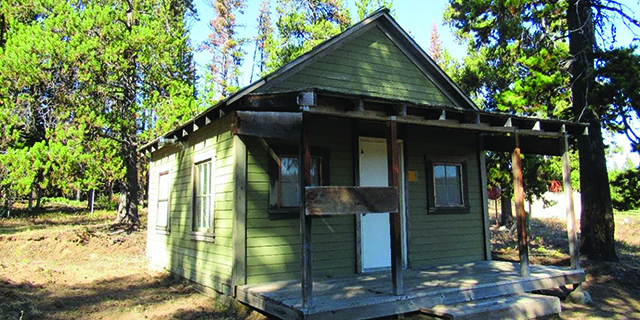Ranchers can’t wait for ‘thousands’ of wolves
Published 1:06 pm Tuesday, May 19, 2015
The Oregon Fish and Wildlife Commission has begun, at least tentatively, the process to remove the gray wolf from the state’s endangered species list.
The state’s wolf plan calls for beginning the delisting process when the state has at least four breeding pairs for three consecutive years. Oregon reached that standard at the end of 2014, when eight breeding pairs were counted. Four breeding pairs were confirmed in 2013 and six in 2012.
Trending
But ranchers who thought reaching that goal was an automatic trigger for delisting are disappointed. While the commission last month voted unanimously to start the process, it has also asked the Department of Fish and Wildlife to present it with information about delisting wolves throughout the state, delisting wolves in only the eastern part of the state, or leaving them on the endangered species list.
Ranchers, who bear much of the expense of literally holding the wolves at bay and receive only partial compensation when they are unsuccessful, feel betrayed. While there has been coffee shop talk about taking care of predatory wolves on the sly — “shoot, shovel, shut up” — illegal takings appear to have been few and far between.
No wolves have been killed while attacking or chasing livestock in Oregon. ODFW killed four for chronic depredation on livestock. Five were illegally shot since 2000; one died when hit by a vehicle.
Officially, ranchers lost to wolves 76 sheep, 36 cattle and two goats from 2009 through 2014. Ranchers say the total is higher than confirmed because many animals just disappear. Delisting would give ranchers more latitude in protecting their animals.
“We lived up to our promise,” said rancher Todd Nash, wolf committee chairman for the Oregon Cattlemen’s Association. “We wholly expect the agency and this committee to live up to theirs.”
But environmentalists have different ideas, and are pushing the state to keep wolves on the endangered species list.
Trending
Most believe there are about 100 wolves in Oregon. Conservationists say there needs to be many more to protect the population from being wiped out by disease or other calamity.
Amaroq Weiss, West Coast wolf organizer with the Center for Biological Diversity, needs “on the magnitude of thousands” of wolves before they are delisted.
Really? A hundred may not be enough, but a thousand is too many.
All of God’s creatures have the right to thrive, and wolves have a place in the wilds of the West.
But that doesn’t mean that wolves should be allowed to make a free meal of cattle and sheep on the range, whether grazing on public or private land. And we don’t think ranchers should have to wait until there are thousands of wolves lining up for dinner before the rules of engagement change.









